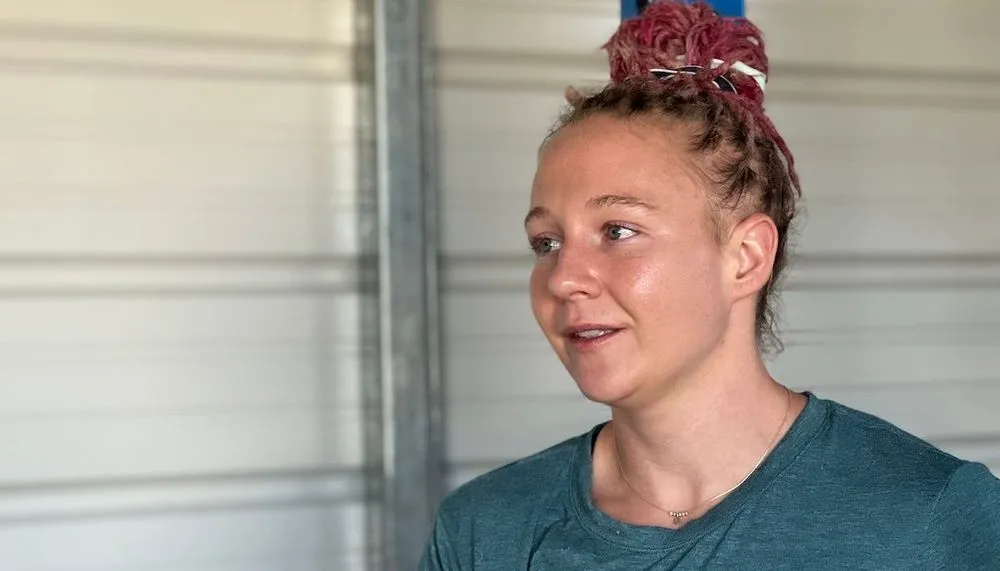In touch with Reality Winner
Reality Winner used to go to work everyday in something called a SCIF, or Sensitive Compartmented Information Facility. The routine was always the same: she would check her phone at the door, swipe a badge, slide through a metal detector, and settle into an area that was built specifically so sound could neither come in nor go out.
Most SCIFs don’t have windows; some emit a kind of white noise to prevent eavesdropping. The most famous one, or at least the one people have seen, is that small room at the White House where President Obama and his advisors sat when they watched the Seal Team Six operation on the Osama bin Laden compound in Abbottabad, Pakistan.
Back in 2017, when Reality Winner was 25, she worked at the Cyber Center of Excellence at Fort Gordon, an army base just outside Augusta, Georgia. And the people she worked with there had developed an odd end of the week ritual. Every Friday at 5 p.m., people would start to watch for headlines.
“So if you go back to March, April, May, 2017, you knew that right at that 5 p.m. journalistic deadline, every Friday, there’d be a new leak,” Winner said in an interview with Click Here. “And of course, working in a secure environment where information was very tightly held, we were watching because these leaks did impact our jobs. We knew that they had made our jobs way harder. And so that was how we viewed leaks — as massive inconveniences, massive setbacks.“
Wikileaks, Shadow Brokers, tidbits from the intelligence community about Russia meddling in the 2016 elections — those were the kinds of stories that people like Winner, in these SCIFs, braced themselves for because the whole reason for a SCIF was to prevent secret information from making its way out into the world. Working in one while watching leaks happen was a bit surreal.
If you asked Winner how she felt about leaks back then, she would have told you she hated them, which made her one of the most unlikely people to leak classified information to the media and be accused of espionage.
Much has been said about what she did and why she did it — in court and in the press. But the story we learned was far more complicated. Nearly five years have passed since she sent a five-page classified document about Russian election meddling to The Intercept. She pleaded guilty, spent four years in a federal prison and has come out the other side.
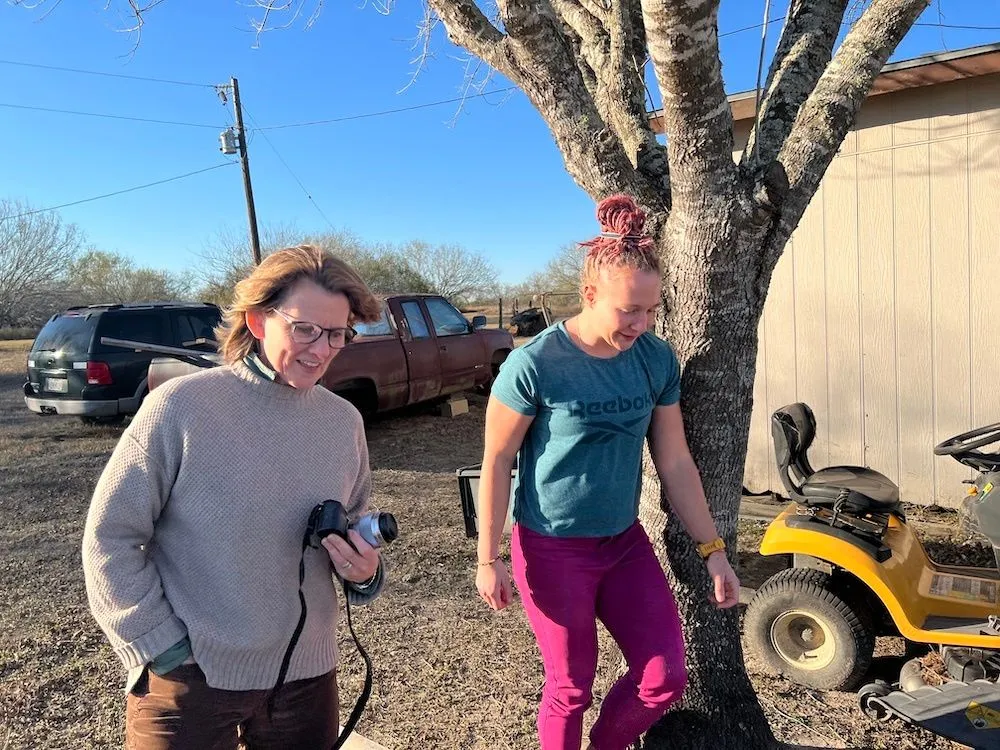
We sat down with her for a rare interview this month to try to answer two fundamental questions: did she do exceptionally grave damage to this country, as prosecutors alleged, or,as her supporters contend, was she trying to defend America’s democratic institutions from our adversaries? And how is it that a low-ranking 25-year-old National Security Agency contractor ended up with the longest sentence of any civilian leaker ever?
In search of a mission
Reality Winner, now 30, lives in her childhood home on the edge of a cattle ranch less than 100 miles north of the Mexican border. She came here after she was released from prison last summer, now living alongside her mom and step-dad and a collection of stray animals.
A horse named Trouble showed up not long ago, and he lives in the back.
Her father, Ronald, died shortly before she first reached out to The Intercept. He was an academic, studied religions, and was always encouraging Reality and her sister to read and study and think critically about the world around them. He used to take his girls to the library on Wednesday nights and Reality would go to the reference section and start with the A-volume of the encyclopedias.
“I would hand-draw maps of Afghanistan and I would trace the Arabic alphabet the way it's written in the encyclopedia,” she said. “It's not even connected or in the right order. It's just the separate individual letters, like how you would never see them written. But I would do that and show it to him.”
Academics were important to the family. Reality’s older sister, Brittany, would go on to collect multiple degrees. Reality graduated near the top of her high school class. She was in a special science and technology program and was offered a full-ride scholarship to Texas A&M to study engineering. Everything might have been different had she taken them up on that.
Instead, she said, she went in search of a mission.
“I had always wondered about having a bigger impact in the world,” she said. “I was ready to be part of the world so I just called [military] recruiters and basically said ‘Hi, my name is Reality Winner, and I’m enlisting to be a linguist in Middle East or North African languages.’ I just cold called them and said, ‘I’m going to be a linguist.’”
What she said she didn’t realize at the time was that being a linguist didn’t mean she’d be on the ground interacting with people. It would be “dark rooms with lots of computers and no person-to-person contact.”
She spent two years at the Defense Language Institute in Monterey, CA, the military’s premier language school, and another year in intelligence training before the Air Force assigned her to work with the NSA at its headquarters at Fort Meade in Maryland. Winner is not allowed to talk about what she did there — it’s classified.
But she would later tell FBI investigators that she worked in the drone program, which likely meant she would be translating intercepted communications to help drone operators identify targets. She spoke Farsi, Dari, and Pashto. Farsi and Dari would have helped her find Iranians in Iraq who might have been working with local insurgents to fight American troops; Pashto would likely have helped in spotting possible insurgents in Afghanistan.
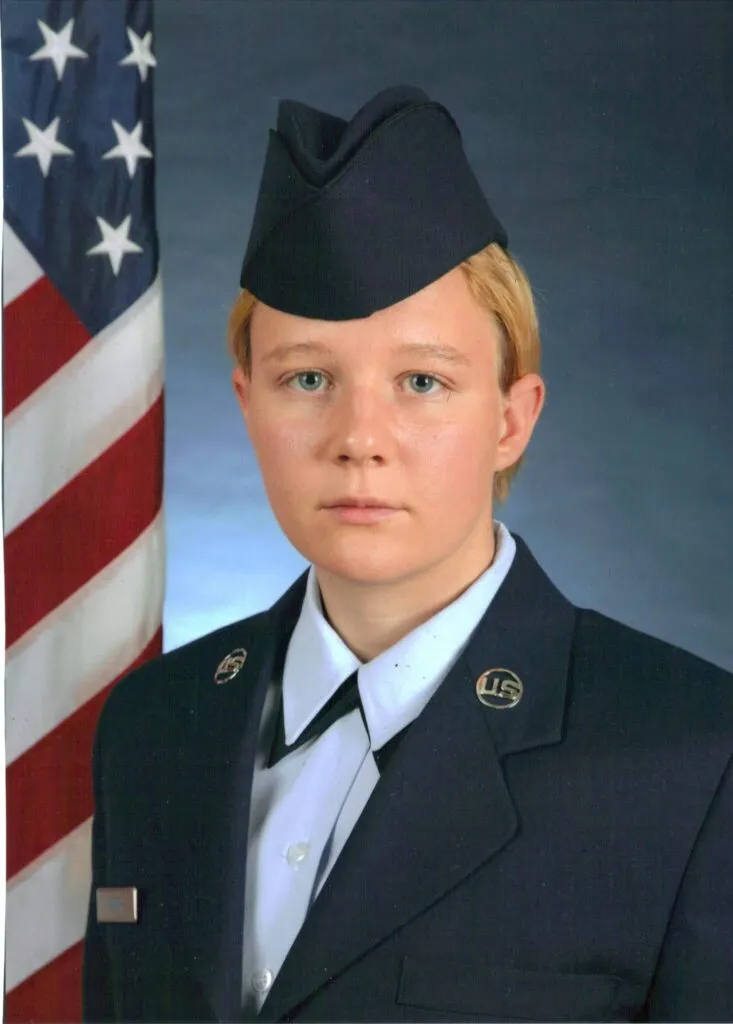
What Winner will concede now, without talking specifically about her job or what she did, is that when she thought about using her facility with languages, she had something entirely different in mind — something more in keeping with what a non-governmental organization might do in-country.
“I just wanted to pass out blankets at a refugee camp,” she said, adding that she loved the Operation Christmas Child program in which volunteers packed a shoebox with toys and then would track to see where it went in the world. “If you asked me if I could do anything in the whole wide world, what I would do tomorrow,” she added, “I want to be the person passing out those shoe boxes.”
By the end of 2016, she had separated from the U.S. Air Force with an honorable discharge and was looking for a job that would land her that overseas posting she wanted. But without a college degree or money to pay her own way, she couldn’t qualify for an entry job.
So she went back to what she did know: intelligence. She had her security clearances, so she applied for defense contracting jobs that she hoped would one day lead her to Afghanistan or some job overseas. Winner said the job she took was just “to fill in lines on a resume.”
All that explains how she ended up in that SCIF at Fort Gordon watching for leaks on Friday afternoons.
‘It's that bystander effect’
We know now from press reports and congressional reports that about two weeks before his inauguration, Donald Trump was given a briefing about what really happened ahead of the 2016 elections. U.S. intelligence officials showed him texts and emails from Russian military officers, and they said they had a top-secret source close to Putin.
But back in the spring of 2017, none of that was public.
In the absence of concrete evidence, there was a lot of speculation as journalists tried to piece together what people did and didn’t know. Some journalists, like Jeremy Scahill at The Intercept, doubted the meddling happened at all and said as much on an Intercept podcast called “Intercepted.” He thought the meddling talk was overdone.
“There is a tremendous amount of hysterics… a lot of premature conclusions being drawn around all this Russia stuff,” he said. “And there’s not a lot of hard evidence to back it up. There may be evidence but it’s not here yet.”
It turns out, Reality Winner had seen that evidence in a classified messaging channel at NSA Georgia, where she was working. There was a five-page top secret document that alleged that Moscow's military intelligence service, the GRU, had attempted cyber-attacks on at least one U.S. voting software supplier days before the 2016 election and had sent phishing emails to more than 100 local election officials. The Russian hackers hadn’t succeeded, but the document seemed proof that they were trying.
Winner said that, given what was going on at the time, she and her colleagues were convinced the document would leak. In fact they were almost placing bets on how long it would take to show up in the news. When it didn’t appear right away, she said people were genuinely surprised. “You’re always waiting for somebody else to speak up,” she said. “It’s that bystander effect.”
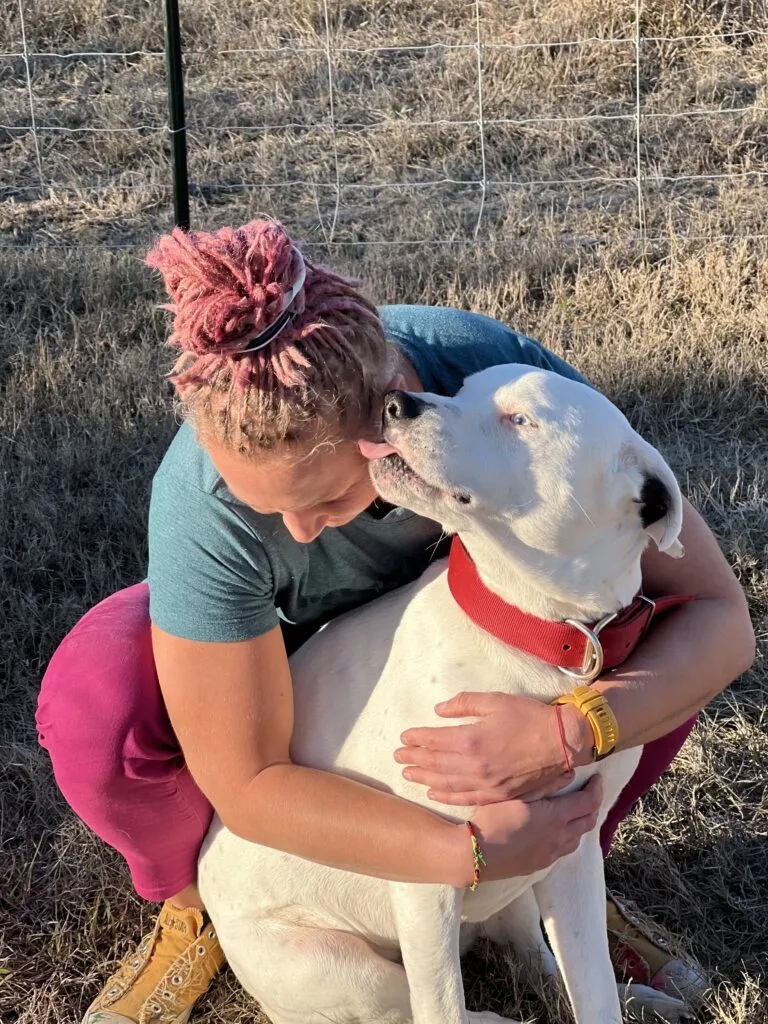
Since that time, so much has been said about Russia’s attempts to meddle in U.S. elections—not just in 2016 but in 2018 as well. But all this was unfolding before that. Before former FBI Director Robert Mueller was put in place to oversee an investigation into Russian meddling and before President Trump fired FBI Director James Comey for allegedly wanting to look into it, too.
All that would come later. What Reality Winner understood in May 2017 was that some important information about a foreign adversary trying to strike a blow against democracy was on her screen. Out in the world, the president and his aides, and members of Congress were all denying it, and that seemed wrong. “The American people deserve their news and information in an academic way. It needs to be black and white, and it needs to be objective the same way that our leaders are briefed,” she said. “How can we be informed citizens, how can we vote on these issues, or how do we know what to ask of our representatives, if we’re getting clickbait from the mainstream media all the time?”
She said that was what she was trying to challenge when she printed the document off the classified server, hid it in her pantyhose and sent it to The Intercept. She thought they would publish the document, make the Russian intentions clear, and then the American people would know, and could decide for themselves. The fact that it was seen subsequently as an effort to take on the U.S. government or Donald Trump, she said, mystified her.
Hindsight is always 20/20
According to Winner, she didn’t go into work the morning of May 9, 2017, to steal a classified document, and she said it never occurred to her to look into the legal ways of calling attention to this information. There were a number of avenues to pursue: among them, reaching out to a member of Congress with clearances or retaining a lawyer to help her do that.
But thinking that through all came later. That May morning, she said, there was no higher level of thought. “It was: take Item A, and give it to The Intercept, and they’re going to save the world with it because there’s always a happy ending, right?” she said. “Someone had called me to cover a yoga class for them and I had a CrossFit session scheduled. As far as I was concerned, that was the most important thing that I did that day.”
She said she put the document in a mailbox after yoga class and hardly gave it another thought, until that next Friday at 5 p.m., when she expected The Intercept would publish it. Nothing happened. She says she wasn’t upset; she was matter-of-fact about it. “They saw it, it got lost,” she said. “It didn't get anywhere and nothing would ever happen. That was a very interesting experiment. Um, moving on. It was an interesting experiment but wasn’t meant to be.”
She went back to work as if nothing had happened. She never took another document and seemed to put it all out of her mind. If that seems far-fetched, there were other indications that Winner didn’t give that decision that would change her life much thought once that envelope slipped into the mailbox. A few weeks later, she decided to go to Belize. Her father had died recently and she wanted to climb Mayan pyramids — something he’d always been interested in — and maybe spread his ashes there. Though, there was a hiccup in that plan too.
“This just shows you how much of a dweeb I am,” she said. “I was so afraid of going through international customs with human remains in my bag, I never did it. Three weeks after committing the felony that changed my entire life, I didn't even want to cross the border with two ounces of my dad.”
Prosecutors would later say she was a flight risk and should be denied bail, but in the weeks after the document left NSA Georgia she certainly wasn’t trying to hide. She was posting Instagram pictures from Belize and logging onto the hotel Wi-Fi every day. Things that would have made her easy to find, if someone had been looking. She returned to Georgia as scheduled, assuming the decision to send that document to The Intercept was behind her.
‘Are you a whistleblower? No.’
When Reality Winner took that five-page classified document, she committed a crime. There’s no argument about that. But there was a way she might have been able to do all of it legally. There’s a formal whistleblower process that includes lawyers and the legal transfer of government documents and, if it all works out, protection. Go outside that process, like Winner did, and it doesn’t really matter what you are releasing— technically, legally, you are not a whistleblower.
“You cannot release classified information to the press and be a lawful whistleblower by definition,” said Mark Zaid, a D.C.-based whistleblower attorney who has written about the Winner case. “If she had just gone over and given it in hand to a member of Congress who was authorized to receive it, she would have been very much protected.”
He said defining a whistleblower isn’t a moral judgment — it is a legal one. And while there are a handful of cautionary tales about people who took the legal route and still lost jobs and went to jail, Winner says had she thought about it a beat or two longer, she might well have done that. “Oh, I definitely could have done that, there was a completely legitimate avenue to go through,” she acknowledged. “But at the time, I believed what I was doing would be seen as altruistic” so that wouldn’t be necessary.
When we asked her if she considered herself a whistleblower, she told me no. She said she had never read extensively about people like Edward Snowden and Chelsea Manning — both of whom leaked classified documents — because as an intelligence officer she wasn’t supposed to. “It was so taboo to even go home and read about it; you were not allowed to read those articles,” she said.
If that sounds beyond the pale, it is important to understand that if you hold clearances there are rules on what you are allowed to see, even if it is public. Technically, intelligence officers are only supposed to see information for which they are cleared. There are lots of intelligence officials who, in order to ensure they don’t accidentally read something they aren’t supposed to, avoid everything written publicly about a leak.
‘That’s what I’m asking you to do: to think’
Everything changed for Reality Winner one June afternoon. The scene unfolded like it does in the movies: an unmarked sedan pulled into her driveway blocked her car in from the front, and another pulled up behind. Eleven plainclothes agents emerged flashing badges.
“I was very aware of the fact that they were armed,” Winner said later to Click Here. “Even though it was concealed carry. They were wearing very light civilian clothes. It was June in Georgia, and it was very hot. So I could see the ankle holsters, and I could see the holsters on their sides, through their clothes. …I figured out really fast why they were there.”
They had a search warrant for her house and said from the start they were investigating the possible mishandling of classified information. The dialogue that followed was like something out of an FBI procedural, according to the FBI transcripts that were released later. The agents hinted that they knew a lot more than they were letting on. Winner denied she knew what they were talking about. “I think you need to stop and think about what you’re saying,” one of the agents told her.
They kept saying, as they fanned out across her house, that everything was voluntary, but to Winner it sure didn’t feel like that. “We had a seven-and-a-half hour hearing about whether or not I was free to leave that day,” she said. “They claim I could have, even though they had parked me in, I could have taken my [Nissan] Cube, driven through the driveway or around their car off, you know, over the curb and driven away and survived or that I could have walked away at any time and survived.”
Among other things, Winner was concerned about a dog — a foster dog. She’s had the dog for about two weeks and the dog didn’t like men. Winner was worried something would happen, that the dog would lunge at the agents and they’d kill it. “And then I would have become hysterical,” she said, “and then they would have shot me.”
What’s more, part of the search warrant required that the agents search her physically, to pat her down, and since there were 11 men there, no one was going to do it. So until a female agent arrived, Winner thought she had to stay put — and didn’t think she had any choice. “Technically I wasn't free to leave because there was a final part of the warrant that needed to be done,” she said. “But in court, they argued that they didn't have to Mirandize me because I was free to leave at any given time.”
About 20 minutes into the search, Winner admitted that she’d sent the document to The Intercept, and that was that. Her lawyer, Joe Whitley, said no reasonable person would have thought they could leave, and she should have been Mirandized.
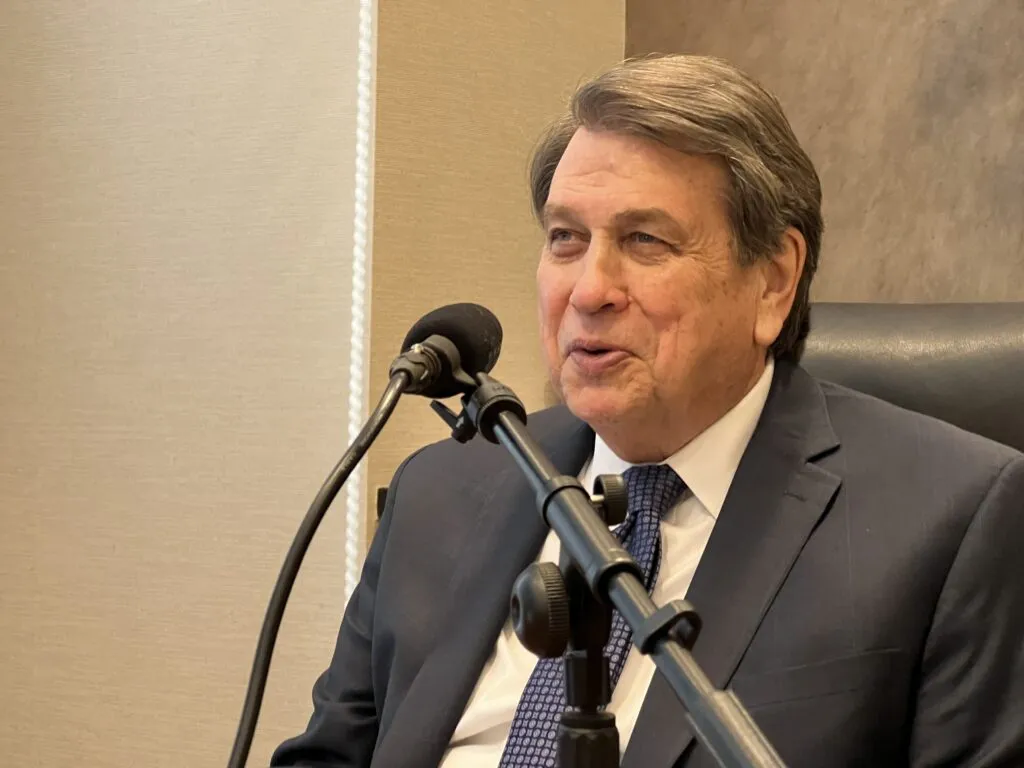
Hours later, someone from the local sheriff’s office arrived and took Winner to jail.
“Anybody who watches Law & Order knows that law enforcement is allowed to lie to people,” attorney Mark Zaid said. “I'm not a fan of it. I've caught them in lies. You hope that if something happens where they cross a line, the system will correct it and catch it.”
The FBI and Department of Justice did not return calls and emails seeking comment for this story.
The question of an envelope
The NSA had the ability to see that only six people printed that leaked document about Russia’s hacking effort during the 2016 election, so the list of suspects was small from the start. Winner and her lawyers say The Intercept only made the job of finding her that much easier. (The NSA declined to comment for this story.)
To check the authenticity of the document, a reporter from The Intercept handed both the document and the envelope to someone in the intelligence community who might have been able to authenticate it. Two officials with knowledge of the case confirmed that. (The Intercept told Click Here that the envelope was never shared.)
The reason that’s important is because the envelope would have had a postmark, handwriting, fingerprints and a number of other identifiable information on it. Typically, if a reporter wants to verify the authenticity of a classified document, they retype it. Doing that allows the information to be verified without revealing identifiable marks on the document that might reveal the source. While there are no formal newsroom rules for dealing with classified information, retyping a document has been pattern and practice for years. That didn’t happen in this case.
According to Winner and her lawyers, and the two officials contacted by Click Here, it wasn’t long before both the original document and the envelope were in the hands of the FBI. When the FBI questioned Winner at her house that day, they said they knew the envelope was postmarked Augusta, Georgia.
To be sure, Winner’s tradecraft was virtually non-existent. “Not getting caught or doing it super covertly was not a concern because again,even if they had found out it was me, I was just trying to help,” she said. “It was seen as something altruistic, zero damage done.”
Which isn’t exactly right either. Mark Zaid, the whistleblower attorney, said that intelligence documents and classified information reveal more than is on the page. It gives adversaries context they might not otherwise have had.
“That document reveals more than anything else that we knew what was going on with the United States at the federal level, knew what the Russians were trying to do and whether they were being successful or not,” he said. “And by revealing that document and telling the Russians what works and what doesn't, that was really valuable information.”
Among other things, the document was dated, which would indicate to the Russians how long it took the U.S. government to figure out what they were doing. These are all details that seem innocuous to the average person but it could provide intelligence to U.S. adversaries.
A guilty plea
Winner was charged under the Espionage Act, a World War I-era law that made it a crime to disclose secrets that could harm the U.S. or help a foreign adversary. Prosecutions under the law for leaking sensitive information to the media used to be rare and typically led to little or no prison time.
But in recent years the Justice Department has been using it more, and Winner was a perfect test case.The fact that it was being tried in a federal court in Augusta, Georgia, only made it harder for Winner.
“Almost all of these are brought in the D.C. area,” her attorney, Joe Whitley said, in his first in-depth interview about the case. “Judges there are familiar with these types or cases. I believe for the judges involved in this matter, it was a bit of an education.”
Winner’s case, had it been tried in D.C. or Virginia or Maryland, wouldn’t have been so unusual. There have been other cases like hers, but they involved high-profile people like former CIA Director David Petreus, who shared notebooks with classified information with his biographer (and lover). He was also a highly decorated Army general.
Sandy Berger took classified documents out of a SCIF by stuffing them in his sock, but he also happened to be former President Bill Clinton’s national security advisor. Winner, on the other hand, was a low-level NSA contractor without those kinds of connections.
Whitley was keenly aware of that. He served as a U.S. Attorney on two separate occasions for the Northern and Middle Districts of Georgia and had been general counsel at the Department of Homeland Security. He had expected that she would have to serve some prison time, but he thought it wouldn’t be more than 24 months.
“I’m a conservative, a Republican, and I certainly believe in national security and maintaining our national secrets,” he said. But Winner, he believes, got a raw deal and a long prison sentence not just because of who she was, but who she wasn’t. She was facing ten years in prison if she went to trial — Whitley and her legal team could only get it down to 63 months. We spoke to three national security attorneys, including Zaid, and they all said Winner should have been sentenced to less than two years.
“I think status, across the board in our legal system, makes a difference in terms of how people are treated,” Whitley said. “I don’t know for sure but I do believe that there was not really anything in Reality’s life that matched either Sandy Berger’s or David Petraeus’ situation. She had no clout in that regard.”
Berger and Petraeus got a slap on the wrist. Winner was sent to a federal prison in Fort Worth, Texas, and did four years of hard time — COVID time, when prisons were on lockdown and what little you might look forward to while behind bars was taken away.
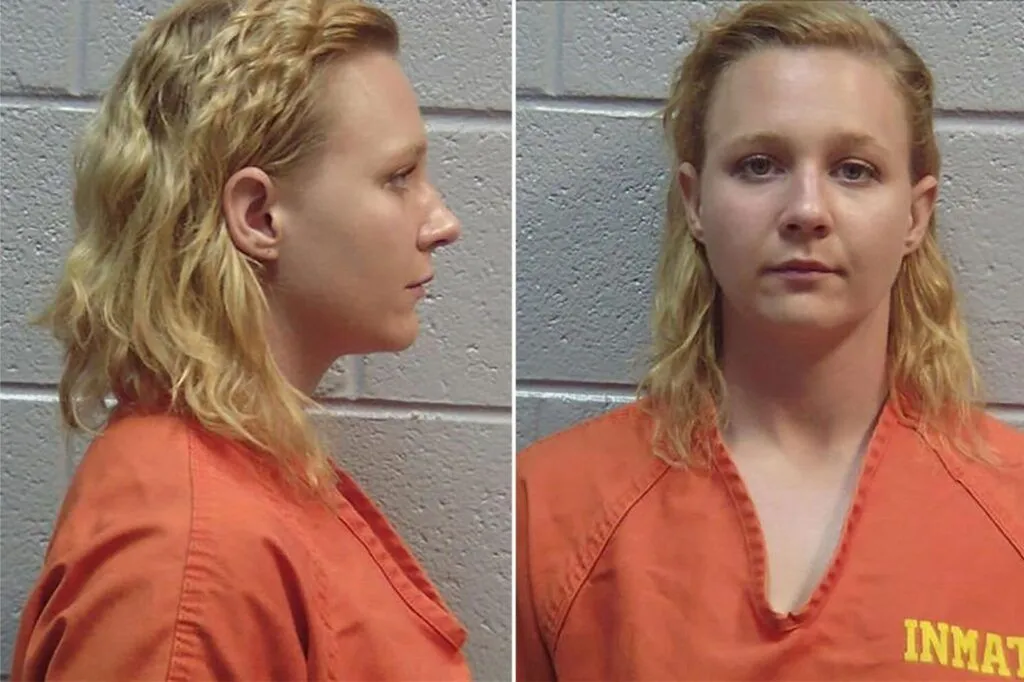
That happened to Winner on April 1st of 2020 when COVID hit the prison. After that, she said, “the only time we ever left the housing unit was to go pick up lunch on styrofoam trays. You didn't see the sun, you didn't feel the sun, you didn't get any recreation, all exercise, all fitness and wellness was gone. So for almost two full years, I had to go on antidepressants.”
Two truths and something hard to square
A lot of Winner’s supporters claim she should be seen in a similar light as leakers like Edward Snowden or Chelsea Manning. Though, they leaked tens of thousands of documents, while Winner just released one. Winner, for her part, says she doesn’t understand the comparison. “They’re very different,” she said, adding she’s read about them since all this happened. “They spent so much time agonizing over this and this was not part of my identity. It was not who I was. It was not something that I had given a lot of… forethought.”
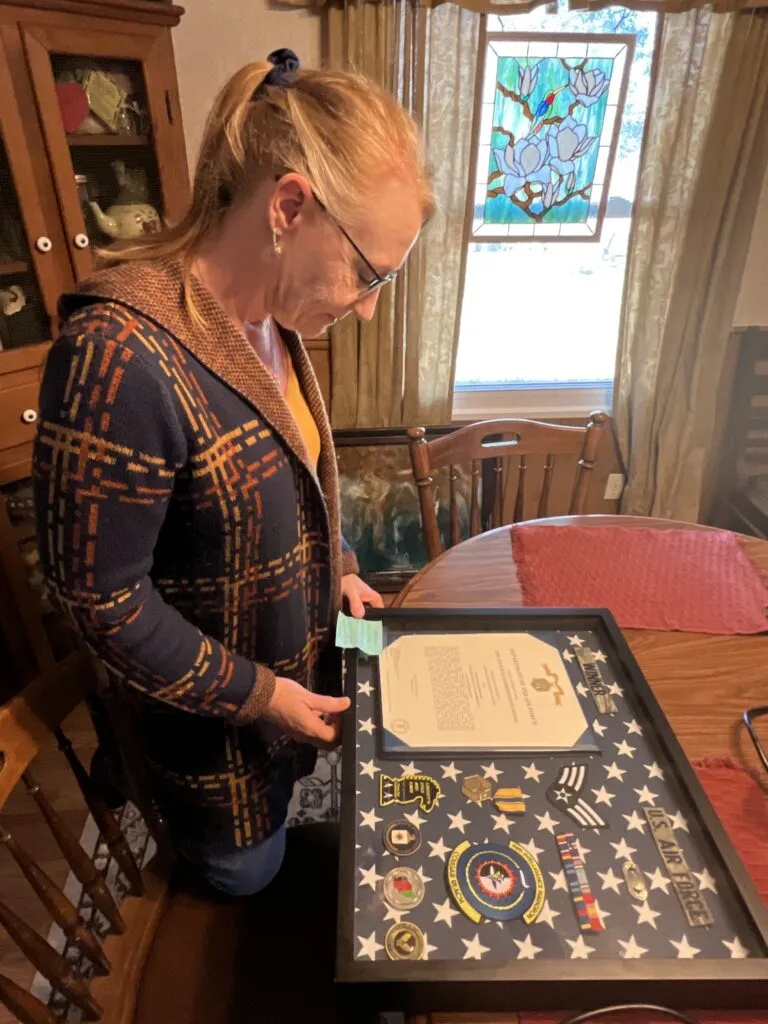
Her mother, Billie Davis, who has a Twitter following and uses the hashtag #FreeRealityWinner, wants her daughter’s sentence to be commuted or even see her pardoned. “She never meant to harm anyone,” she said. “She never meant to betray the trust of her country and just how overboard our government went I mean, I think that she's already paid enough.”
On the wall above the dining table hangs a commendation for the work Winner is not allowed to talk about. It is from the Department of the Air Force to Senior Airman Reality L. Winner. It is in one of those shadow boxes that military families have with patches and ribbons.
The commendation thanks Airman Winner for producing 2,500 reports, aiding with 650 enemy captures, 600 enemies killed in action, and identifying 900 high-value targets. What she can’t talk about — the thing that should give her clout — is what she did in the military. It is still classified.
After speaking with Winner, her lawyers, people in the intelligence community, and national security officials, her case comes down to two truths and something we just can’t square. All our reporting supports the fact that her decision to release the document wasn’t something she had planned. And just about everyone agrees that her sentence was unnecessarily harsh, given what she did and how little she released.
What we can’t square, though, are her claims that she didn’t know passing a classified document to the media would come with tremendous consequences. For someone with years of training and experience in intelligence; someone who thought leaks complicated her job; and followed her training so precisely that she didn’t read about Edward Snowden or Chelsea Manning because it was taboo — she had to have known what would happen next, or at least have some idea.
Winner knows what she did was wrong. She did her prison time, and has come out the other side. She says she’s excited about starting over. She is living with restrictions that are part of her release. She can’t travel anywhere for the next three years. She has to be home every night by 10 pm. A pardon, or a commutation of her sentence would make them go away. She’s not counting on either.
Instead, she’s making the best of Kingsville. “I need to slow down and understand what it means to be part of a community and be part of a city and be part of what shaping people's everyday lives instead of looking to national level politics,” she said, “because that's not providing the solutions for everyday people.”
The sorts of things she had been hoping to do overseas, all those years ago, are smaller now. She says she’s very happy. “There are so many things that could make life better,” she said. “I could go see my baby niece in North Carolina and be there for my sister when she needed me. But right now, as it stands, I'm reclaiming my life. I'm reclaiming my life story.”
Sean Powers contributed reporting to this story.
Click Here Ep. 3 - In touch with Reality Winner (Transcript) on Scribd
Dina Temple-Raston
is the Host and Managing Editor of the Click Here podcast as well as a senior correspondent at Recorded Future News. She previously served on NPR’s Investigations team focusing on breaking news stories and national security, technology, and social justice and hosted and created the award-winning Audible Podcast “What Were You Thinking.”
